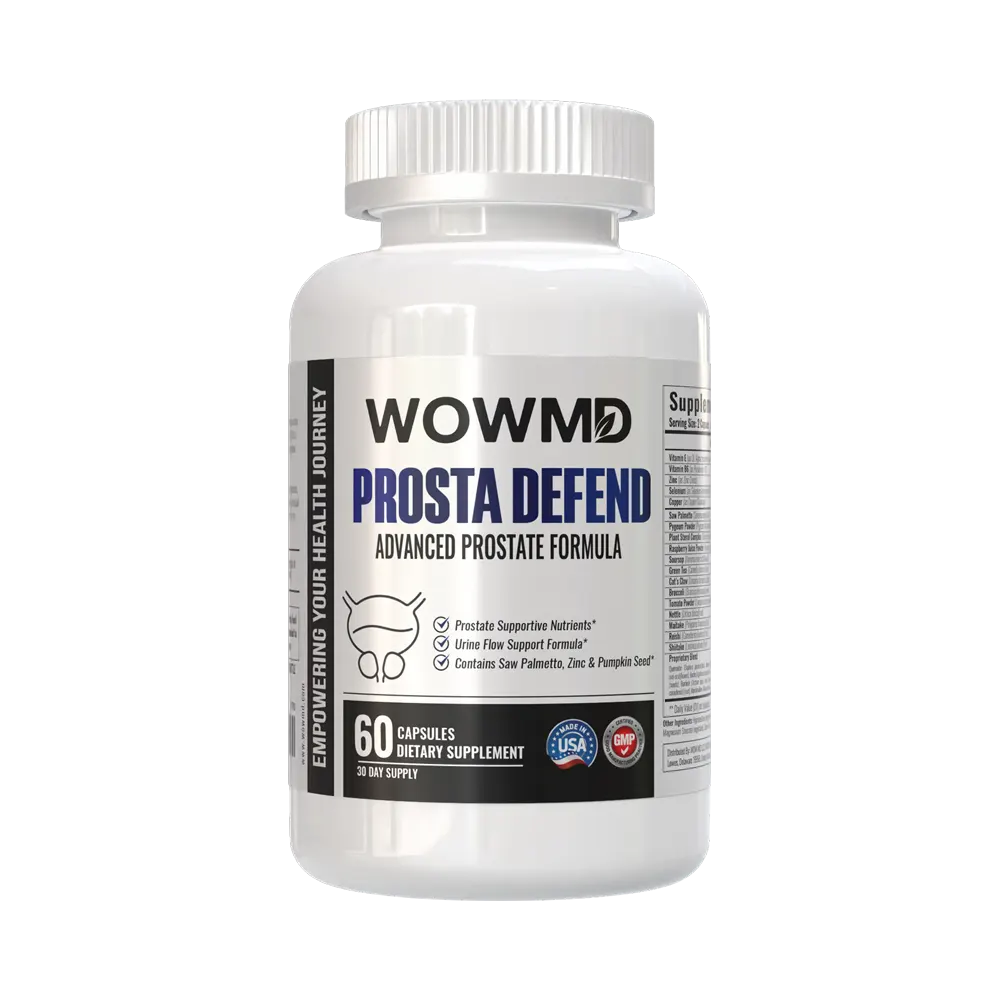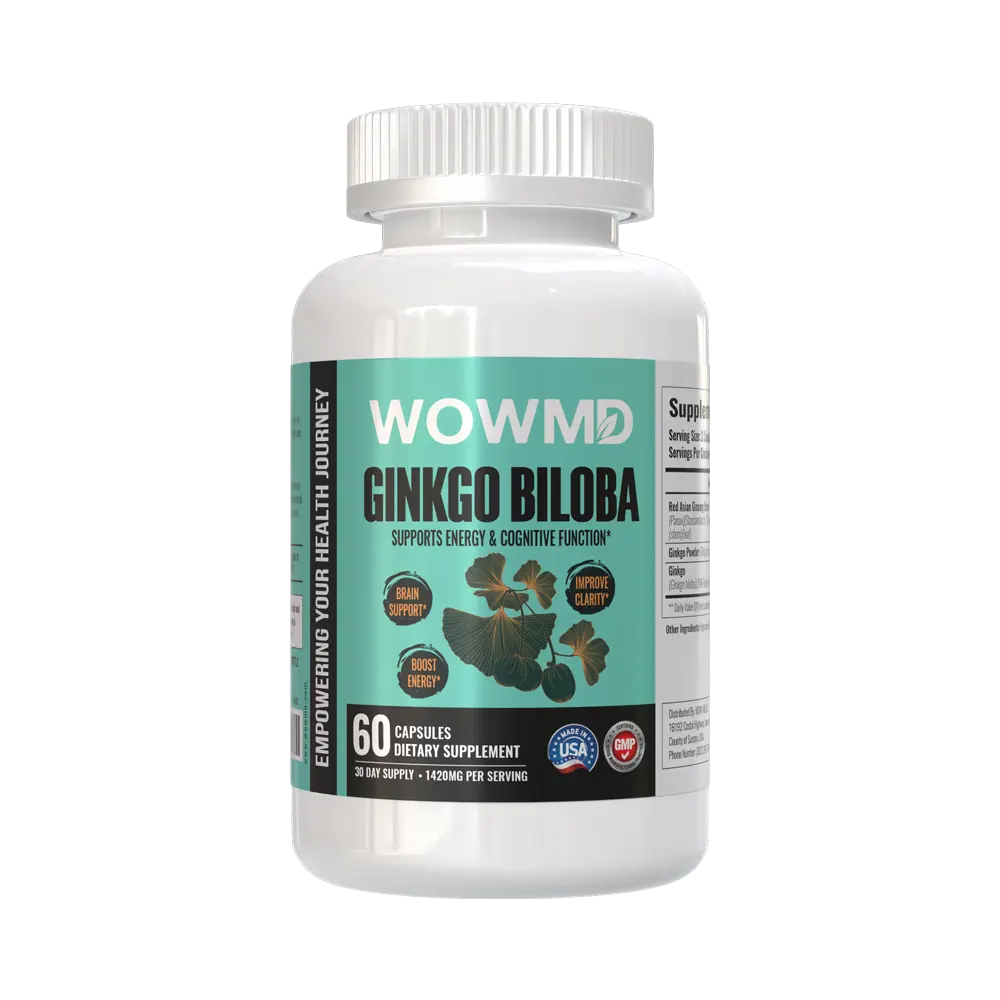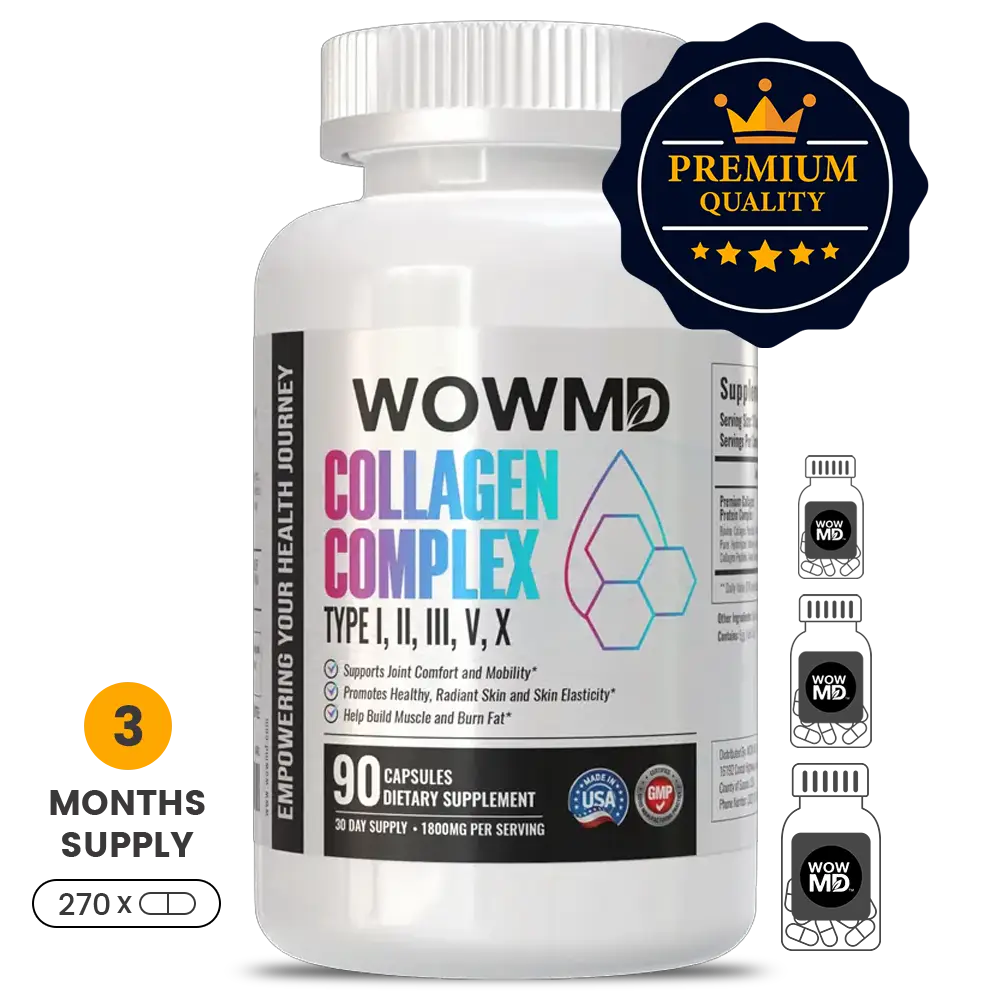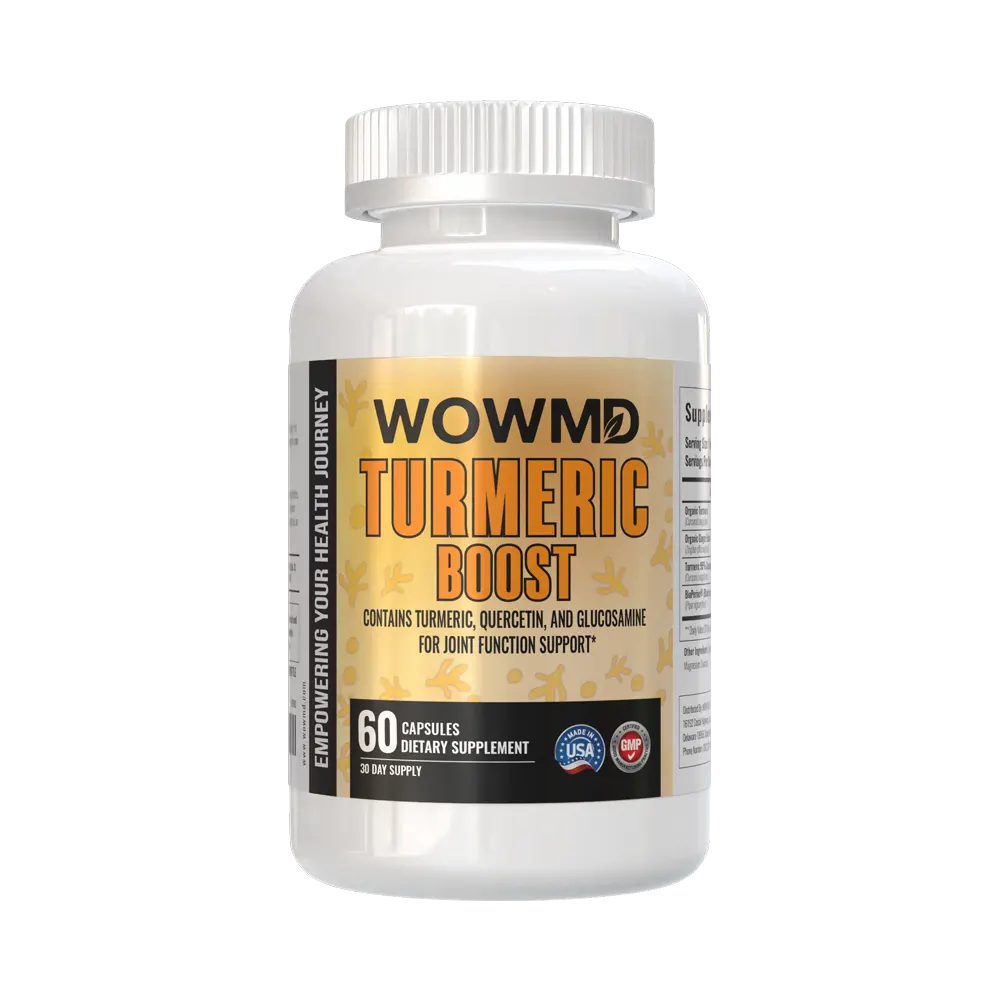How To Choose The Best Affordable Joint Supplements for Pain Relief
In this article, Learn about How To Choose The Best Affordable Joint Supplements for Pain Relief.

Table of contents
- Why Joint Supplements Matter
- Exploring Different Types of Joint Supplements
- Key Ingredients
- Ingredients to Be Cautious About
- Choosing Budget-Friendly Joint Supplements
- Dosage and Administration Tips
- Potential Side Effects of Joint Supplements
- Alternative Approaches to Supporting Joint Health
- How Long Does it Take for a Joint Supplement to Work?
- Conclusion
Joint pain is a challenge that millions face every day. It's not just a simple ache that comes and goes. For many, joint pain can be a constant companion that makes everyday activities feel like major challenges. Imagine struggling to get out of bed, walk up the stairs, or even hold a cup of coffee. These simple tasks can become painful ordeals when your joints are not functioning well.
The good news is that you don't have to live with constant discomfort. There are multiple ways to support your joint health and reduce pain. With the right approach, you can improve your mobility, reduce inflammation, and enhance your overall quality of life.
Why Joint Supplements Matter
Think about your joints like the hinges on a door that opens and closes countless times every day. Just like those hinges, your joints can become stiff, worn, and less smooth over time. As you age, your body becomes less efficient at repairing and maintaining joint health. This is where joint supplements come into play.
Joint supplements are like a specialized care package for your body's movement system. They provide essential nutrients that help reduce inflammation, support cartilage health, and improve overall joint function. These supplements work by giving your body the extra support it needs to maintain flexibility and reduce pain.
Exploring Different Types of Joint Supplements
Not all joint supplements are created equal. Each type targets joint health in a slightly different way. Let's explore the main varieties:
Glucosamine Supplements
Glucosamine is a natural compound found in your body that helps build cartilage. As we age, our natural production decreases. Supplements can help replace this lost compound. They are particularly helpful for people dealing with osteoarthritis or experiencing joint wear and tear. Glucosamine can help reduce joint pain and improve mobility by supporting cartilage health.
Chondroitin Supplements
Chondroitin works hand in hand with glucosamine. Think of it like a moisture-retaining agent for your joints. It helps cartilage stay hydrated and resilient, making your joints more shock-absorbent. When paired with glucosamine, chondroitin can provide comprehensive support for joint health.
Omega-3 Fatty Acid Supplements
These powerful supplements are known for their anti-inflammatory properties. Inflammation is a major cause of joint pain, and omega-3s help calm this response. By reducing inflammation, these supplements can help decrease joint stiffness and improve overall comfort.
Key Ingredients to Look for in Joint Supplements
When searching for an effective joint supplement, focus on these powerful ingredients:- Methylsulfonylmethane (MSM) is a natural compound that helps reduce inflammation throughout the body. It supports collagen production, which is crucial for maintaining healthy joints. Turmeric is another incredible ingredient, a natural anti-inflammatory that can rival some pain medications.
- Boswellia is an herbal extract with strong anti-inflammatory properties. It has been used in traditional medicine for centuries to support joint health. Collagen is another critical ingredient that helps rebuild and support joint cartilage, keeping your joints flexible and strong.
Ingredients to Be Cautious About
Not all supplement ingredients are beneficial. Be wary of supplements that contain unnecessary fillers, artificial additives, or excessive sugars. Synthetic compounds with limited scientific research should also raise red flags. Always look for supplements that have been third-party tested for quality and purity.
Choosing Budget-Friendly Joint Supplements
Finding an effective joint supplement doesn't mean breaking the bank. Focus on supplements that provide clinically studied doses of key ingredients. Compare prices per serving, not just the total bottle cost. A slightly more expensive supplement might offer better value if it's more concentrated or effective.
Look for brands with positive customer reviews and transparent manufacturing practices. Supplements made in FDA-approved facilities with third-party testing certifications are typically more reliable.
Dosage and Administration Tips
Start with the recommended dosage on the product label. Everyone's body is different, so you might need to adjust based on your specific health conditions. Take supplements with food to improve absorption and be consistent with your daily intake.
Always consult with a healthcare professional before starting any new supplement regimen, especially if you have existing health conditions or are taking other medications.
Joint health isn't just about supplements. Regular low-impact exercise like swimming and cycling can help maintain joint flexibility. Your diet also plays a crucial role. Incorporate anti-inflammatory foods like fatty fish, berries, and leafy greens.
Consider complementary treatments such as physical therapy, massage, or acupuncture to provide additional support for your joints.
Potential Side Effects of Joint Supplements
Understanding potential side effects is crucial for making an informed decision about joint supplements. While most supplements are generally safe, your body might react differently to various ingredients. Some people experience mild digestive discomfort when first starting a new supplement. This could include slight stomach upset, bloating, or changes in bowel movements.
Allergic reactions are another potential concern. Some individuals might be sensitive to specific ingredients like shellfish-derived glucosamine or certain herbal extracts. These reactions can range from mild skin irritation to more serious symptoms. People with known allergies should carefully review supplement ingredients and consult with their healthcare provider.
Medication interactions are an important consideration. Joint supplements can sometimes interfere with blood thinners, diabetes medications, or other prescription drugs. For example, omega-3 supplements might affect blood clotting, while some herbal ingredients could impact blood sugar levels. This is why professional medical advice is so important before starting any new supplement regimen.
Alternative Approaches to Supporting Joint Health
Exercise and Movement: Your Natural Joint Therapy
Physical activity is one of the most powerful ways to support joint health. Low-impact exercises provide multiple benefits without putting excessive stress on your joints. Swimming is an excellent option, offering a full-body workout while supporting your joints with water's natural buoyancy. Cycling, whether outdoors or on a stationary bike, helps improve joint flexibility and muscle strength without harsh impact.
Yoga and gentle stretching can also work wonders for joint health. These activities improve flexibility, reduce stiffness, and help maintain a full range of motion. They also strengthen the muscles around your joints, providing better support and reducing overall strain.
Nutrition: Feeding Your Joints from the Inside Out
Your diet plays a critical role in joint health. Anti-inflammatory foods can help reduce joint pain and support overall joint function. Fatty fish like salmon and mackerel are rich in omega-3 fatty acids, which help combat inflammation. Berries, packed with antioxidants, can help reduce oxidative stress that contributes to joint damage.
Leafy green vegetables provide essential nutrients that support joint health. Spinach, kale, and other greens are rich in vitamins and minerals that help maintain cartilage and reduce inflammation. Consider incorporating these foods into your daily diet alongside your joint supplements.
Complementary Therapies for Comprehensive Support
Beyond supplements and diet, several complementary therapies can support joint health. Physical therapy offers targeted exercises and treatments designed to improve joint function and reduce pain. A skilled physical therapist can create a personalized plan that addresses your specific joint health needs.
Massage therapy can help reduce muscle tension around joints, improving flexibility and reducing discomfort. Acupuncture is another option that some people find helpful for managing joint pain. This traditional Chinese medicine technique may help reduce inflammation and promote healing.
How Long Does it Take for a Joint Supplement to Work?
Healing and support take time. Most people begin to notice improvements in their joint health within 4-8 weeks of consistent supplement use. However, this is not a one-size-fits-all timeline. Your age, overall health, the severity of joint issues, and your body's unique response will all play a role in how quickly you see results.
Some individuals might experience quick relief, while others may need several months to notice significant changes. Consistency is crucial. Taking your supplements regularly, maintaining a healthy diet, and staying active will provide the best opportunity for improvement.
ALSO READ - Best Glucosamine and Chondroitin Supplements for Healthy Joints
Conclusion
Joint health is a holistic journey that combines supplements, nutrition, exercise, and professional guidance. No magic solution works overnight, but with the right approach, you can significantly improve your joint comfort and mobility.
Listen to your body. Pay attention to how it responds to supplements and lifestyle changes. What works for one person might not work exactly the same for another. Be patient with yourself and open to making adjustments along the way.
Consult with healthcare professionals who can provide personalized advice based on your specific health history and current condition. They can help you create a comprehensive plan that addresses your unique joint health needs.
Remember, taking care of your joints is an investment in your overall quality of life. Every small step you take today can lead to greater mobility, less pain, and more enjoyment in the years to come.
About WOWMD Staff
The WOWMD Staff category features a diverse team of writers, each bringing specialized knowledge in areas such as nutrition, fitness, wellness, and more. Articles in this category benefit from insights provided by multiple experts. All content is peer-reviewed and regularly updated to ensure compliance with our editorial standards.
References
- A Double Blind, Randomized, Placebo Controlled Clinical Study Evaluates the Early Efficacy of Aflapin® in Subjects with Osteoarthritis of Knee https://www.medsci.org/v08p0615.htm
- Role of Collagen Derivatives in Osteoarthritis and Cartilage Repair: A Systematic Scoping Review With Evidence Mapping - PubMed https://pubmed.ncbi.nlm.nih.gov/33068290/
- Antioxidant and anti-inflammatory effects of curcumin/turmeric supplementation in adults: A GRADE-assessed systematic review and dose–response meta-analysis of randomized controlled trials - ScienceDirect https://www.sciencedirect.com/science/article/abs/pii/S1043466623000224
- Methylsulfonylmethane: Antiinflammatory Actions and Usage for Arthritic Conditions - ScienceDirect https://www.sciencedirect.com/science/article/abs/pii/B9780128138205000325
- Glucosamine - Mayo Clinic https://www.mayoclinic.org/drugs-supplements-glucosamine/art-20362874
- Chondroitin - an overview | ScienceDirect Topics https://www.sciencedirect.com/topics/pharmacology-toxicology-and-pharmaceutical-science/chondroitin
- Omega-3 Fatty Acids for the Management of Osteoarthritis: A Narrative Review - PMC https://pmc.ncbi.nlm.nih.gov/articles/PMC9413343/
- Joint Pain - International Association for the Study of Pain (IASP) https://www.iasp-pain.org/advocacy/global-year/joint-pain/
Evidence Based Research
This WOWMD content has been reviewed, as well as checked for facts, so as to guarantee the best possible accuracy.
We follow a strict editorial policy, especially related to the sources we use. Our articles are resourced from reputable online pages, with research drawn from academic institutions and peer-reviewed studies. You can click on the numbers in the parentheses (1, 2, etc.) and check out those references.
The feedback form on this page can be used to report content that is not accurate, up-to-date or questionable in any manner.
We do NOT intend for the information presented through our articles to replace the medical relationship with a qualified physician, nor does it represent specialized advice.


 Skin Detoxification Bundle
Skin Detoxification Bundle Complete Weight Loss Bundle
Complete Weight Loss Bundle Heart Care Bundle
Heart Care Bundle Better Immunity Bundle
Better Immunity Bundle  Men's Immunity & Prostate Health Bundle
Men's Immunity & Prostate Health Bundle Stress + Energy + Wellness Combo
Stress + Energy + Wellness Combo  Energy Booster Combo
Energy Booster Combo Natural Skin Care Bundle
Natural Skin Care Bundle Workout Supplements Combo
Workout Supplements Combo Cognitive Health & Vision Combo
Cognitive Health & Vision Combo Joint Health Support Combo
Joint Health Support Combo

















 By WOWMD Staff
By WOWMD Staff